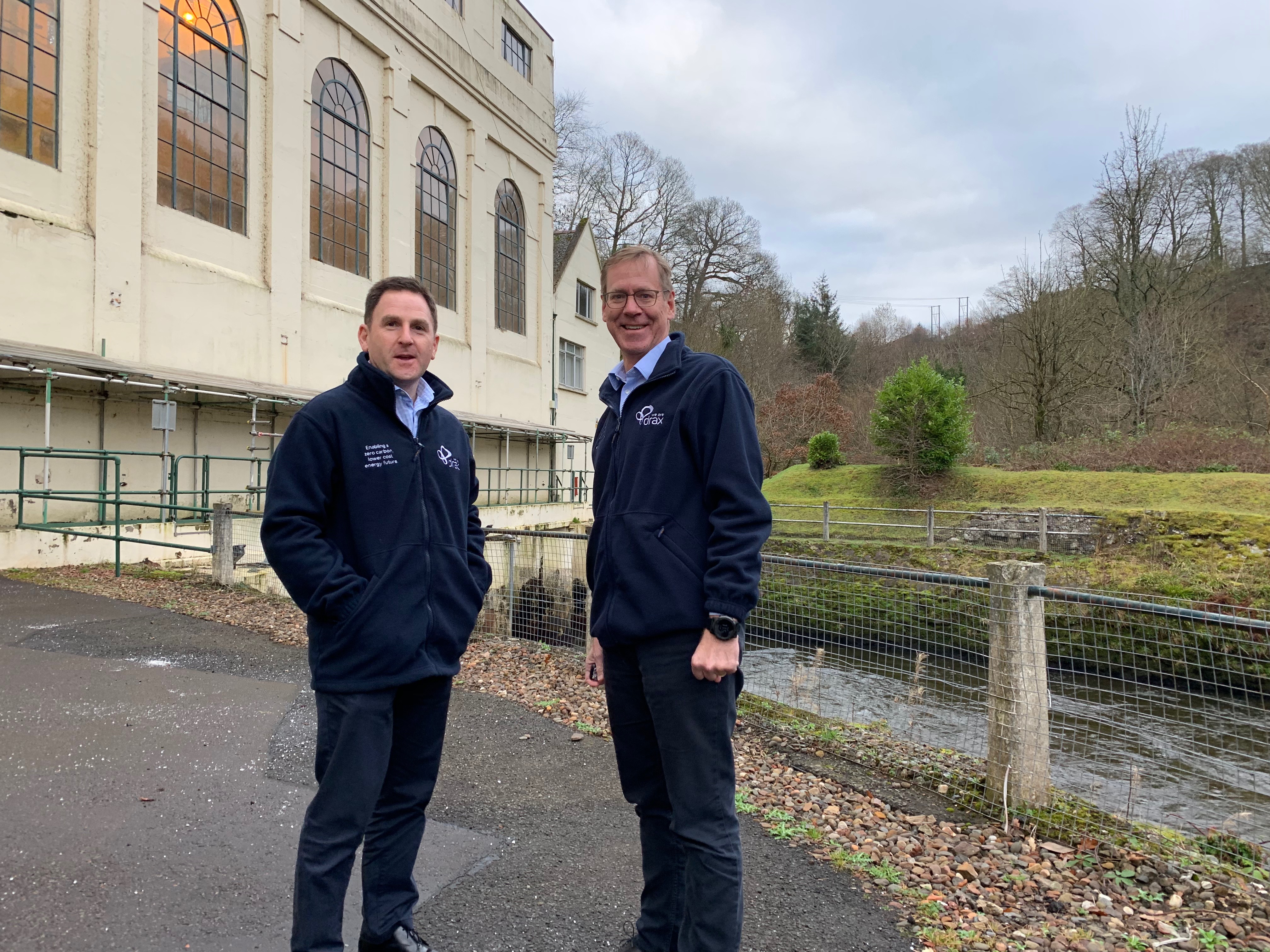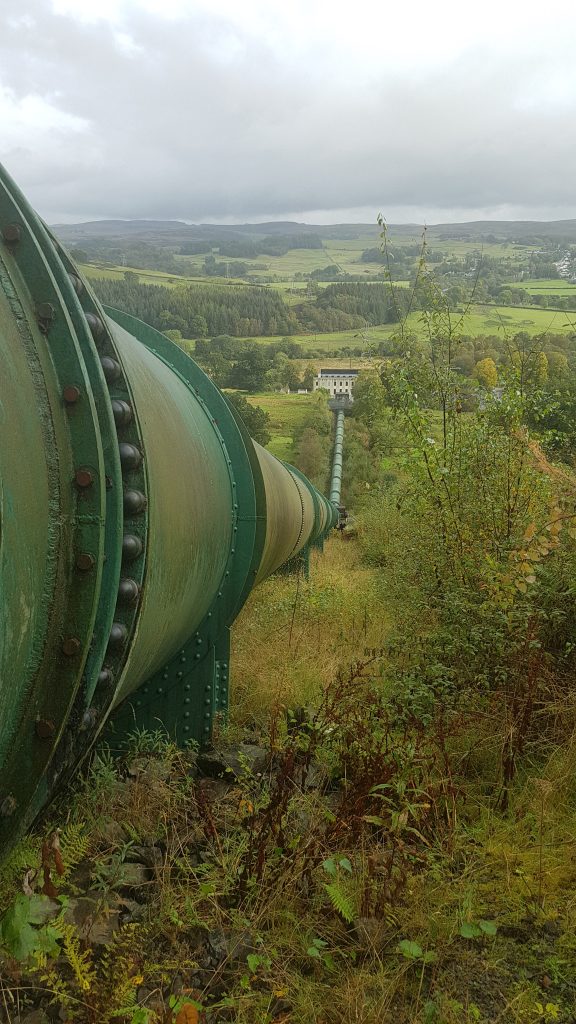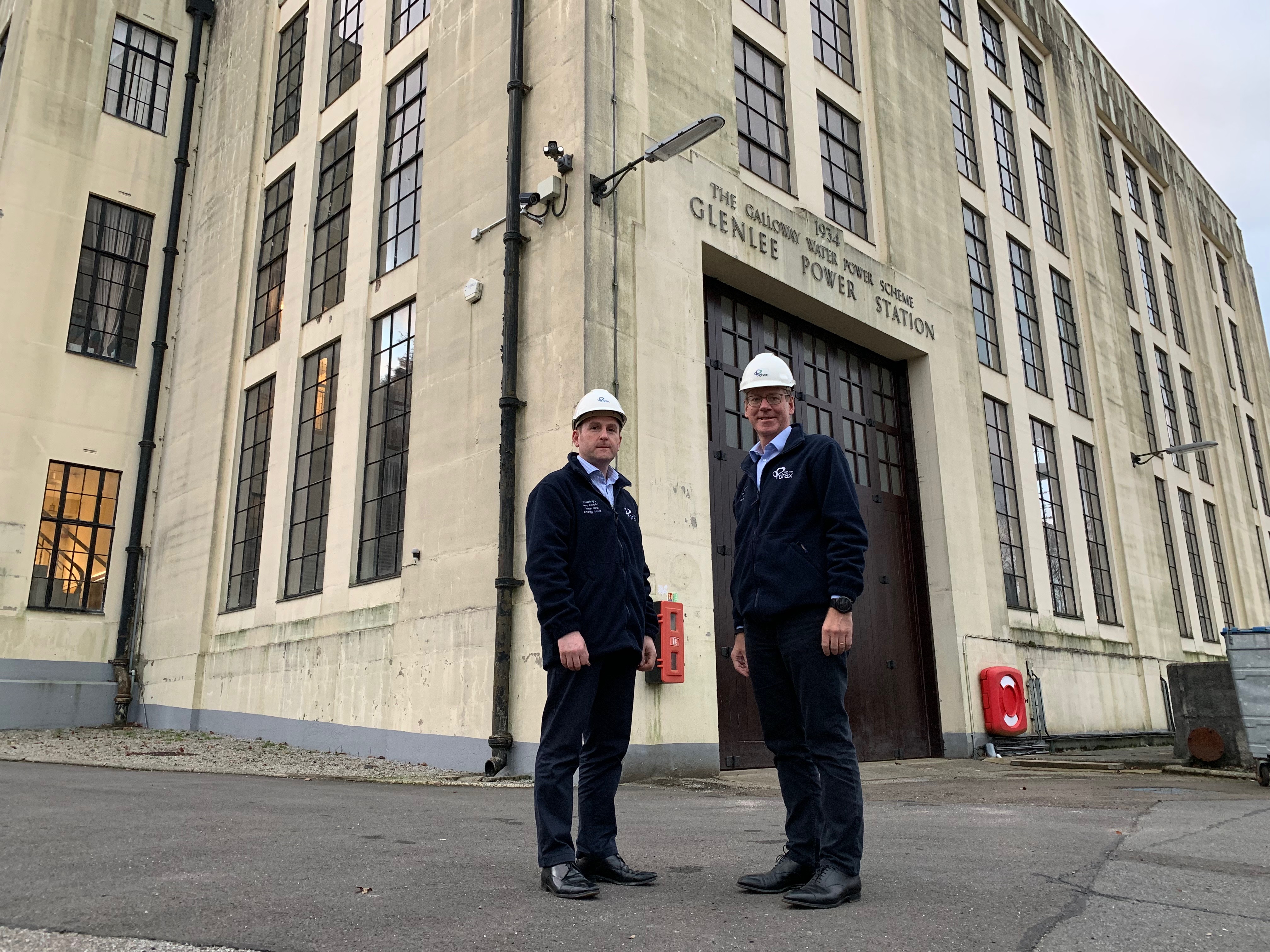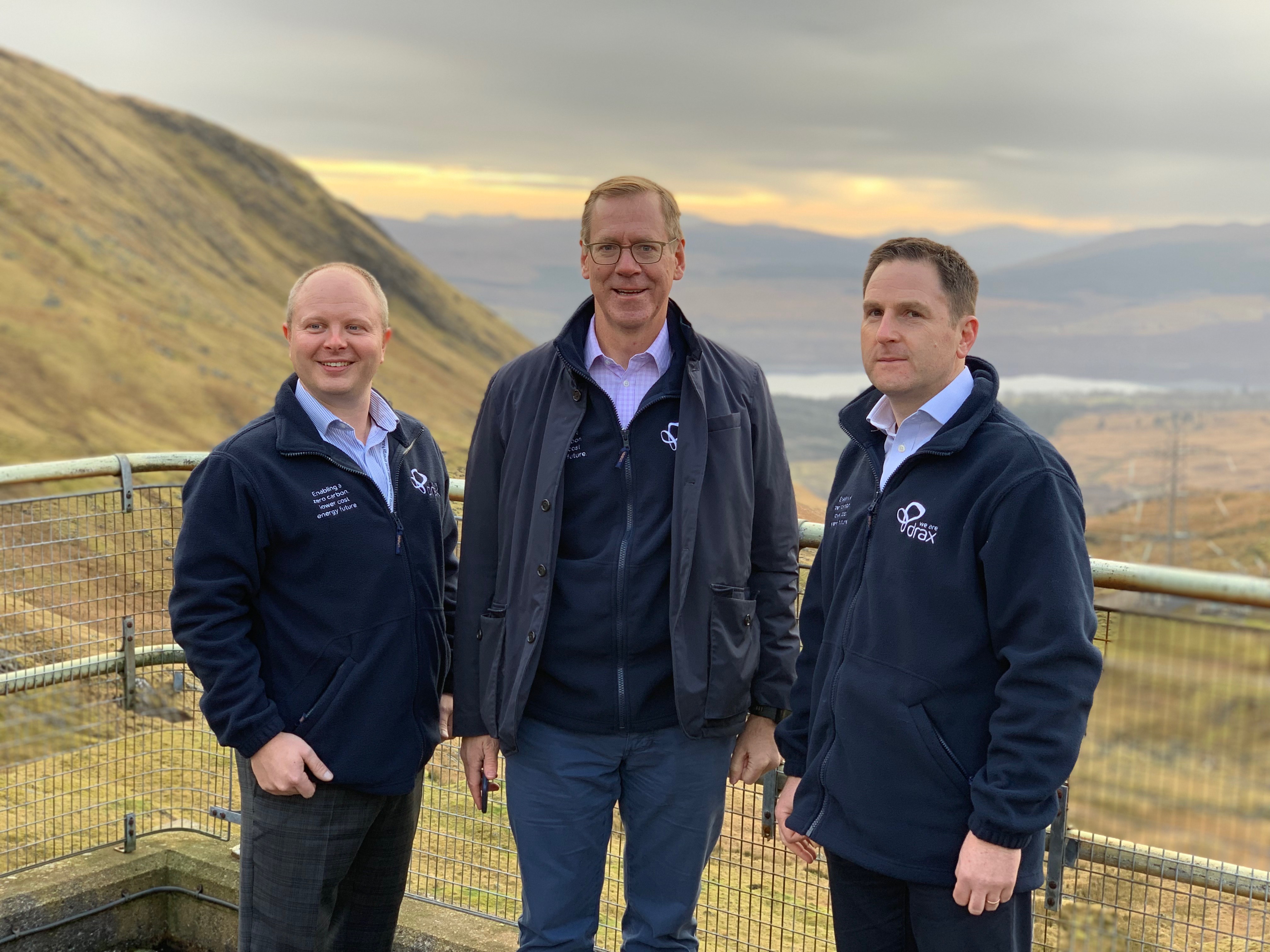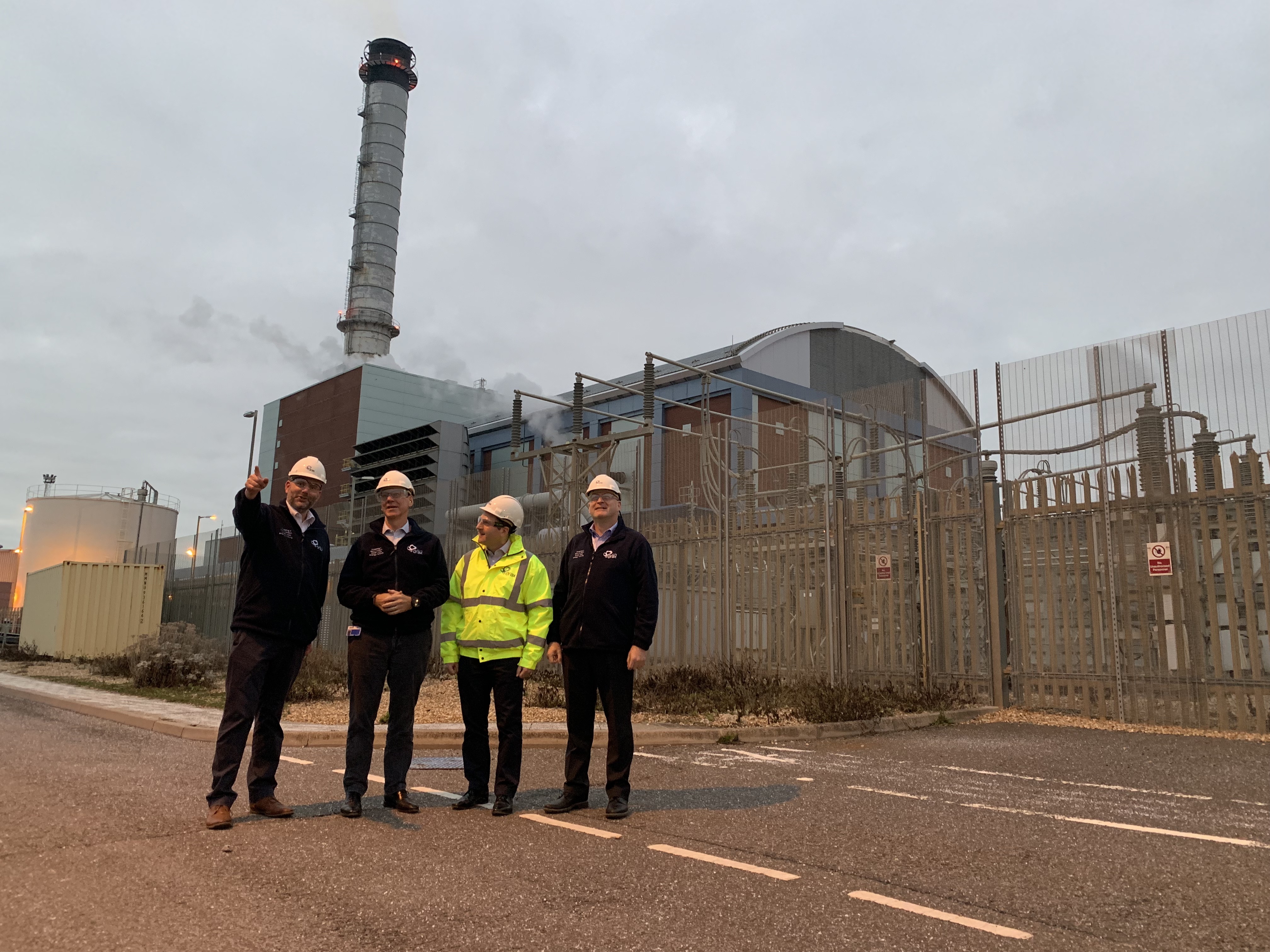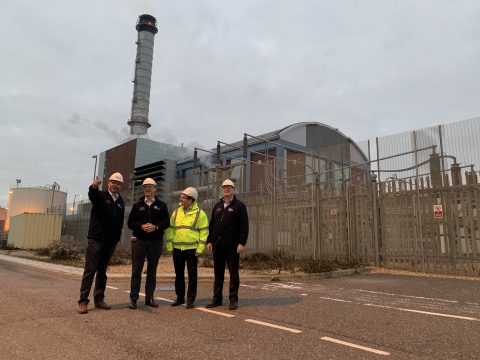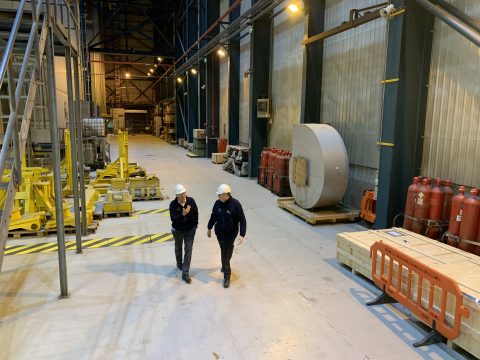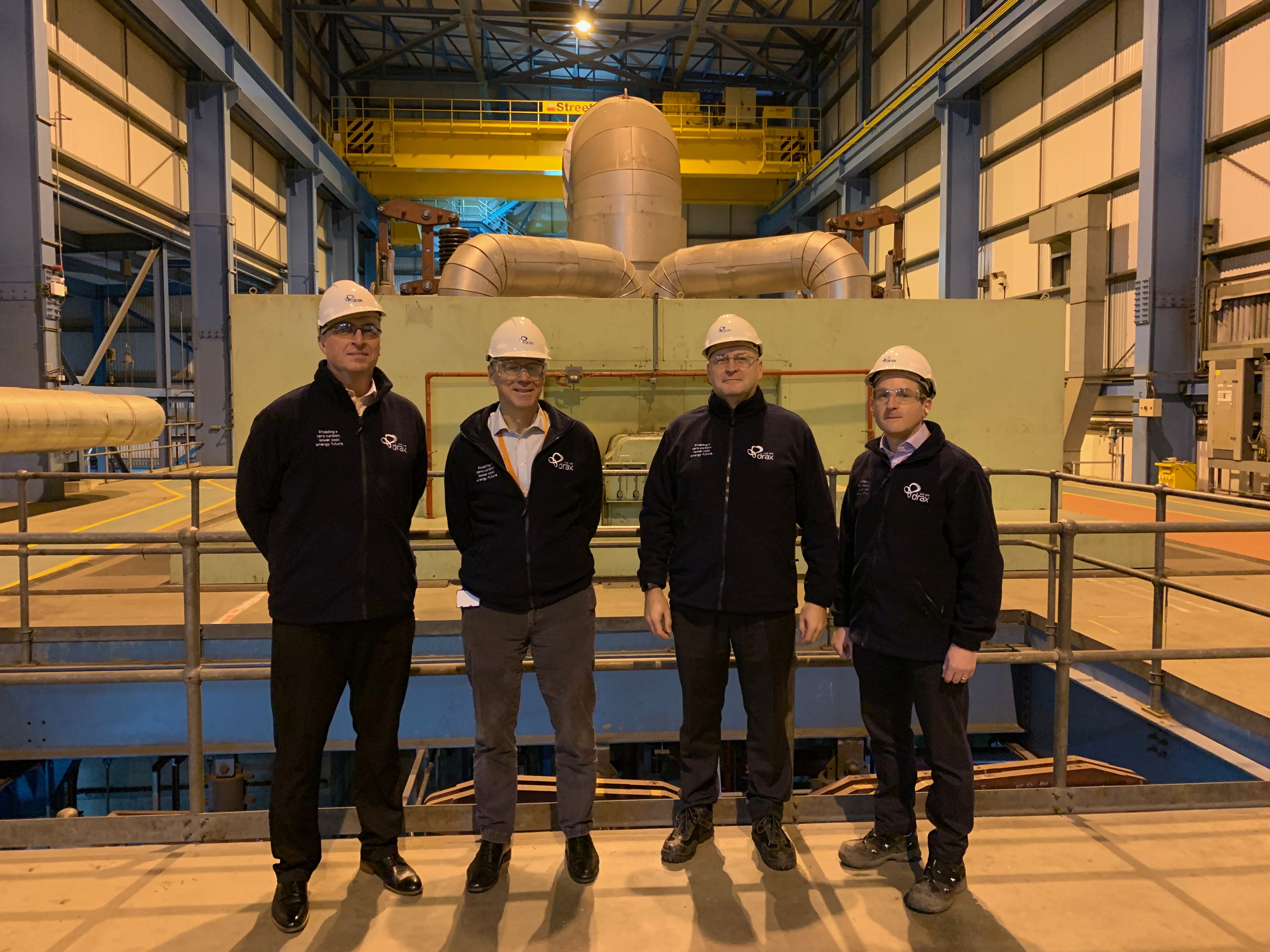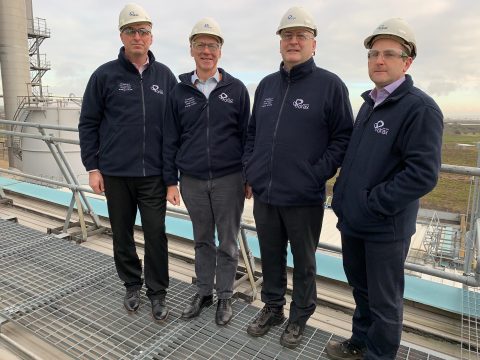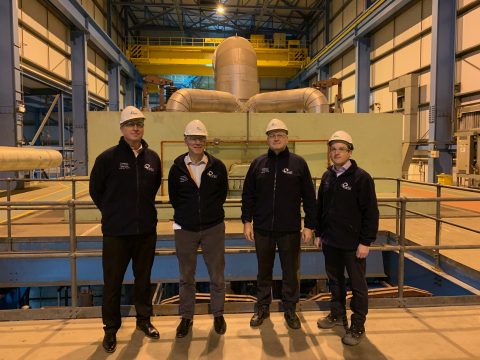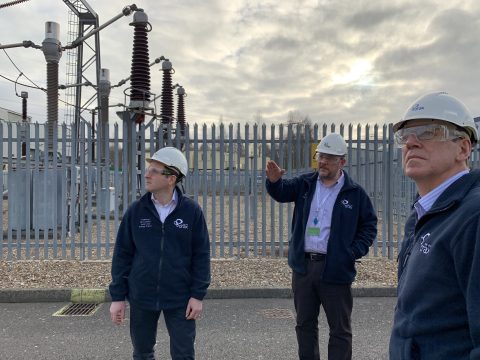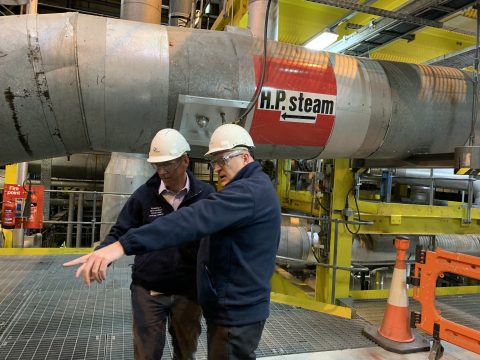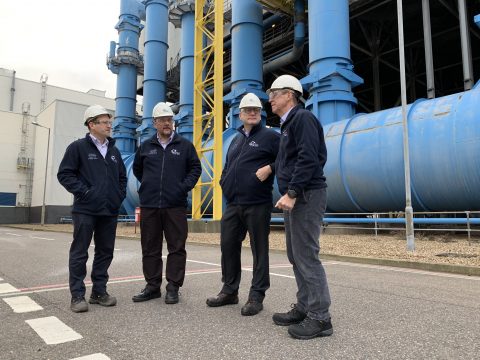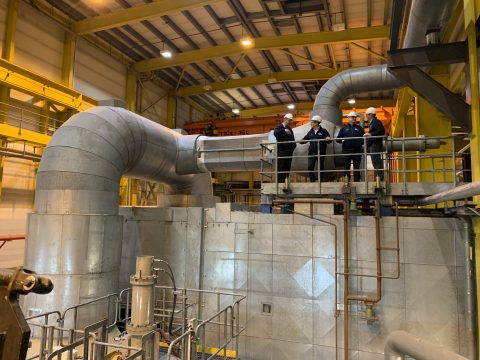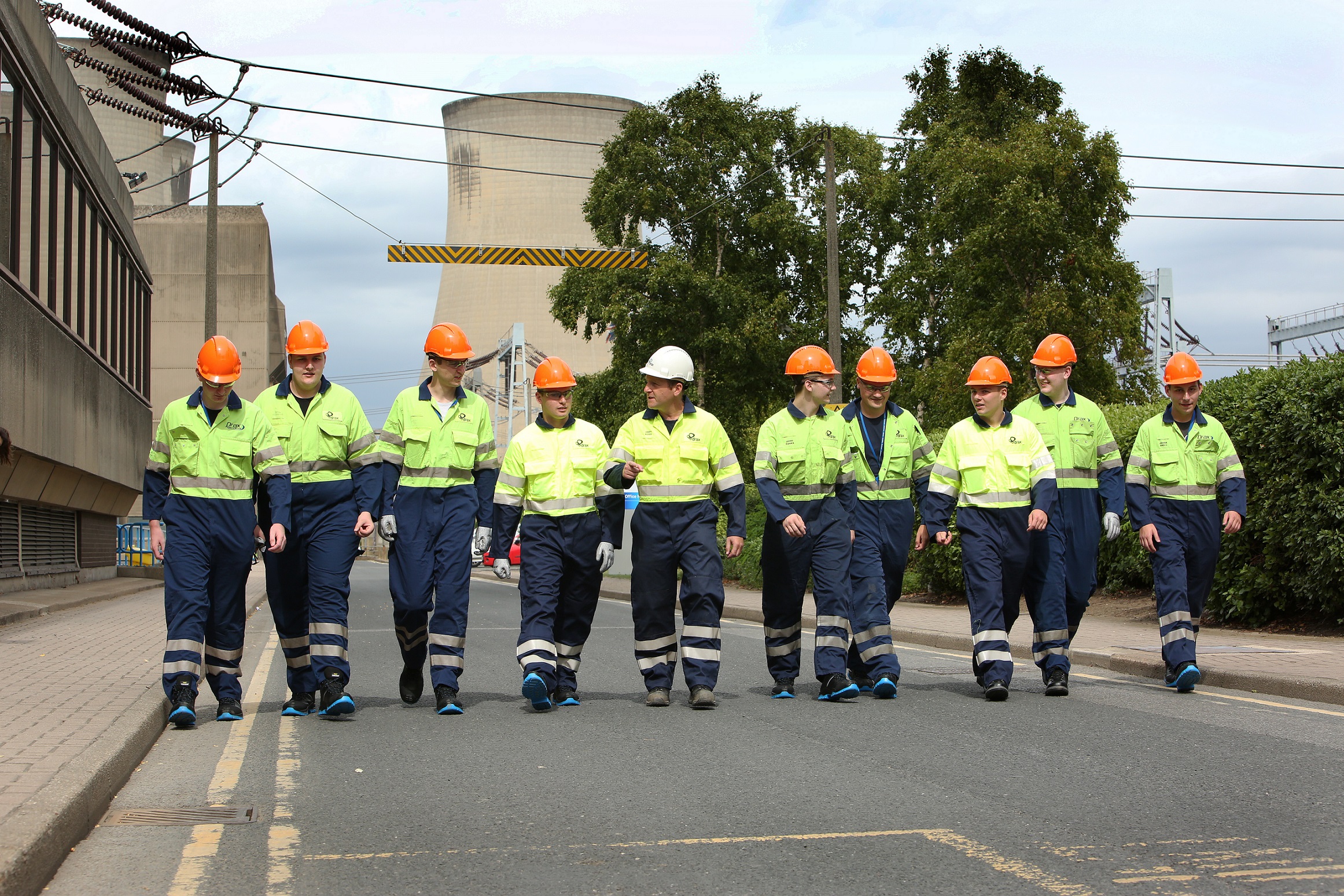
Tom Glennon-Fell, who was named Drax Power Station’s Year 3 Apprentice of the Year in November, was speaking as the deadline approaches for applications for this year’s apprentice intake at the Selby-based site.
Drax, the largest decarbonisation project in Europe, announced at the end of last year that it was doubling the number of apprentices it would take on at the Drax Power Station in 2019 compared to just two years ago, with 12 trainees due to begin their training there later this year.
Dozens of school and college students have already applied for a chance to begin their careers at the North Yorkshire power station, which produces enough power for more than six million households.
Drax also now owns and operates a portfolio of hydro, pumped storage and gas power generation assets across England and Scotland following their acquisition from Spanish company Iberdrola at the start of the year.
The deadline for applications is January 31 and Tom urged would-be applicants to get their applications in before it is too late.
He said: “Being an apprentice at Drax has been an amazing start to my career. I’ve still got lots to learn but I’m getting great experience.
“There’s so much technical ability at Drax to learn from, and there’s so much going on here, with teams working on the latest technologies like Carbon Capture and Storage. It’s a brilliant place to start your career.”
Andy Koss, Drax Power CEO, said:
“Every business in the Northern Powerhouse region has a role to play in creating opportunities for young people and raising aspirations – encouraging them to develop the skills they’ll need in the future.
“Our apprentices are the rising stars at Drax – they’re the key to the long-term success of the business. An apprenticeship is a brilliant way to begin a career in a variety of roles here and I’m looking forward to meeting our next intake.”
Nine engineering apprentices began their careers at the Selby-based power station in September, a 50% increase on apprentice numbers in previous years as Drax continues to invest in and promote STEM (Science, Technology, Engineering and Maths) skills.
The energy firm also sponsors a number of PhDs at Sheffield University, producing cutting-edge research into areas such as the impact of human behaviour on vehicle to grid technologies where, in the future, electric cars could store and discharge power back to the grid to support the electricity system.
Drax will be accepting applications for technical apprenticeships until January 31 with further opportunities in business support areas, such as finance and business administration, becoming available throughout the year. Drax is keen to attract applications from people of all backgrounds and to encourage diversity.
More information about apprenticeships is available on the Drax website.
ENDS
Media contacts:
Jessica Gorton
Drax Group Press Officer
E: jessica.gorton@drax.com
T: 07712677177
Mark Duffell
https://tel07969 080272MCD Communications Ltd
E: mduffell@mcdcomms.co.uk
T: 07969 080272
About Drax
Drax Group’s ambition is to enable a zero carbon, lower cost energy future. Its 2,600-strong staff operate across three principal areas of activity – electricity generation, electricity sales to business customers and compressed wood pellet production.
Power generation:
Drax owns and operates a portfolio of flexible, low carbon and renewable electricity generation assets across Britain. The assets include the UK’s largest power station, based at Selby, North Yorkshire, which supplies six percent of the country’s electricity needs.
Having converted two thirds of Drax Power Station to use sustainable biomass instead of coal it has become the UK’s biggest renewable power generator and the largest decarbonisation project in Europe.
Its pumped storage, hydro and energy from waste assets in Scotland include Cruachan Power Station – a flexible pumped storage facility within the hollowed-out mountain Ben Cruachan. It also owns and operates four gas power stations in England.
B2B supply:
Drax owns two B2B energy supply businesses:
- Haven Power, based in Ipswich, supplies electricity and energy services to large Industrial and Commercial sector businesses.
- Opus Energy, based in Oxford, Northampton and Cardiff, provides electricity, energy services and gas to small and medium sized (SME) businesses.
Pellet production:
Drax owns and operates three pellet mills in the US South which manufacture compressed wood pellets (biomass) produced from sustainably managed working forests. These pellet mills supply around 20% of the biomass used by Drax Power Station in North Yorkshire to generate flexible, renewable power for the UK’s homes and businesses.
For more information visit www.drax.com








